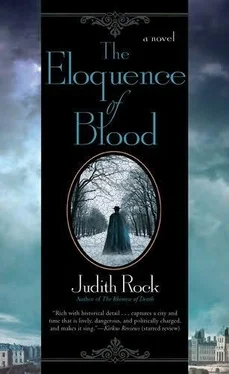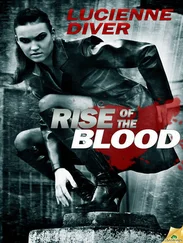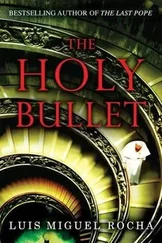Judith Rock - The Eloquence of Blood
Здесь есть возможность читать онлайн «Judith Rock - The Eloquence of Blood» весь текст электронной книги совершенно бесплатно (целиком полную версию без сокращений). В некоторых случаях можно слушать аудио, скачать через торрент в формате fb2 и присутствует краткое содержание. Жанр: Исторический детектив, на английском языке. Описание произведения, (предисловие) а так же отзывы посетителей доступны на портале библиотеки ЛибКат.
- Название:The Eloquence of Blood
- Автор:
- Жанр:
- Год:неизвестен
- ISBN:нет данных
- Рейтинг книги:5 / 5. Голосов: 1
-
Избранное:Добавить в избранное
- Отзывы:
-
Ваша оценка:
- 100
- 1
- 2
- 3
- 4
- 5
The Eloquence of Blood: краткое содержание, описание и аннотация
Предлагаем к чтению аннотацию, описание, краткое содержание или предисловие (зависит от того, что написал сам автор книги «The Eloquence of Blood»). Если вы не нашли необходимую информацию о книге — напишите в комментариях, мы постараемся отыскать её.
The Eloquence of Blood — читать онлайн бесплатно полную книгу (весь текст) целиком
Ниже представлен текст книги, разбитый по страницам. Система сохранения места последней прочитанной страницы, позволяет с удобством читать онлайн бесплатно книгу «The Eloquence of Blood», без необходимости каждый раз заново искать на чём Вы остановились. Поставьте закладку, и сможете в любой момент перейти на страницу, на которой закончили чтение.
Интервал:
Закладка:
“Mon frere,” Charles said to the Capuchin, “put your arm through the rope coil and climb onto my shoulders. Quickly, here, use my hands!”
Charles crouched. The friar took his proffered hands, put a foot on Charles’s thigh, and scrambled onto his shoulders. Slowly, Charles stood up. They loosed hands, Charles gripped the monk’s ankles, and the monk stood upright. Above them, the child was watching their acrobatics, momentarily distracted from his terror.
Charles said, “I will tell the child what to do. Then you will throw him the rope. Ready?”
“Ready.”
“Mon brave,” Charles called to the boy, “we will throw you a rope. You must put it around your waist and tie it and then hold it with both hands as tightly as you can. Do you hear me?”
The child nodded.
“Throw it,” Charles shouted to the friar.
To his relief, the man’s aim was true and the child caught the rope and fumbled it around his waist. But before he could tie it, a gust of air sent new flames rising behind him.
“Hold it tight, mon petit!” Charles bellowed. And to the man on his shoulders, “Pull!”
The child flew toward them, the friar yanking with all his strength to pull the boy past the flames in the shop door, and Charles caught him as he fell. All three of them toppled backward into the fire-melted snow. Capuchins surrounded them. One of them took the child and began to comfort him. The others pulled Charles and their brother to their feet, thanking and blessing them.
“Well done.” Pere Michaut, the Capuchin superior, bowed slightly to Charles. His white beard was singed and streaked with soot, and his gown was spattered with small holes from burning cinders. Behind him, a young layman in coat and breeches, equally singed and soot blackened, was smiling at Charles and the friar who had helped him.
Charles said, “Who is the boy, mon pere? Didn’t the shopkeepers know he was up there?”
“He is their servant.”
Charles stared at Michaut, remembering the woman’s grief for her lace and pink mules. “And they left him to burn?”
“You have saved him.” Michaut’s eyes held Charles’s for a long moment. “I am reminded anew that God arranges all things.” He turned to the young man standing behind him, who looked to be twenty years old or so. “Allow me to present Monsieur Fiennes. He lives very near us.” Michaut nodded toward the gates of the townhouse where the shop owner had gone to have her burns tended. His eyes sought Charles’s again. “And he will soon be among us as a novice.” With that, Michaut turned away and took the listening friars with him.
Fiennes bowed. “Enchante, mon pere.”
“The pleasure is mine, Monsieur Fiennes. But I am only maitre. Maitre Charles du Luc. Our Jesuit formation is long, and I am still a scholastic.”
“I hope I will be as faithful in my own vocation.” The young man’s smile was sweet. “I am Aubin d’Auteuil de Fiennes, but Monsieur Fiennes is enough name to call me by.”
“You do me honor. But after what I have seen tonight, my choice seems a far easier one than yours.”
“God puts us where our souls need to be,” Fiennes said with a little shrug, as though murderous fire, bare boards, scant food, and wicked cold were things of no account.
Charles studied the boy. “Will you speak with me for a moment, Monsieur Fiennes?”
“With pleasure.” The youth looked back at the fire with a sigh. “At least the wind has died and it will not spread. Thank God the house stands by itself. There is not much more we can do. It is so often like that. If only God would show us some better way to fight fire.” Fiennes looked down at his feet. “Shall we move farther away? The water is nearly over our shoes.”
Charles’s cloak and cassock were wet against his back, and his shoes squelched audibly as he went with the young man toward a townhouse where a knot of servants clustered beside the lantern-lit gate.
“You seem to know something about fires,” Charles said, as they made their way into the courtyard.
“With God’s help, I am going to be a Capuchin, and Capuchins are the firefighters of Paris. But I hear from your accent that you are not Parisian, so perhaps you didn’t know.”
“I did, but I had never seen them at it. I am much impressed by their bravery and effort.”
“They impress devotion on my heart in every way. Please come inside, maitre, you are welcome.”
Inside the townhouse, a maid took them to a small salon where fire, reduced to the role of good servant, crackled welcomingly in the fireplace. A basin of warmed water and towels were brought, and when they had cleaned their soot-blackened faces and hands, Fiennes bade Charles sit beside the fire and served him wine and cakes from a side table. Charles looked at the salon’s sumptuous carpets and tapestry, at the rich red wine in his gold-veined Venetian glass, at the upholstered chairs fringed with gold. He, too, had given up some comfort, but nothing compared to what Fiennes was about to leave. Yet seeing him in the light, Charles realized that this son of wealth was dressed very differently from Gilles Brion, with his frothing lace and up-tothe-minute suit. Fiennes’s coat and breeches were of plain, even rough, brown wool, with only a glimpse of coarse white linen at the throat and wrists.
Charles ate and drank gratefully, but also guiltily. If Fiennes was who Charles thought he must be, then God-or Michaut-or the fire-or all three together-had delivered him into Charles’s hands. And what Charles needed to ask was not going to be easy.
But he was wrong. The youth was so radiantly happy that nothing seemed to trouble him.
“Yes, maitre,” he said simply, in response to Charles’s question, “Gilles Brion is my dear friend. Dearer than life itself to me.” His soft brown eyes were the most guileless Charles had ever seen. “I pray for him day and night. I have gone to the Chatelet, but the guards will not let me see him. He has done no murder, of that I am certain. Why God has put him into prison, I cannot understand.”
“I think you may be able to help get him out, if you will answer what I have to ask.”
“I will.”
“Monsieur Henri Brion was killed early on the Friday morning after the Nativity. And Pere Michaut says that on Thursday night, Gilles Brion was a guest at the Capuchin monastery.”
“Yes.”
“Did he come to this house during that night?”
Fiennes looked down. “Yes.” He looked up again, and Charles was disconcerted to see his smile.
“How long did he stay with you?”
“He came just after Compline and he stayed until an hour or a little less before Prime. He left me then to go and do something we’d been praying about during the night.”
“What was that?” Though Charles thought he knew, he wanted to be sure.
“We prayed that the young woman his father was forcing on him would agree to tell Monsieur Brion that she would not marry Gilles.”
“And how long was he gone on this errand?”
“Perhaps three-quarters of an hour. It was still dark when I met him in the Capuchin church for Prime. We were there well before the Prime bell, so no one knew that Gilles had left the monastery.”
Whether or not Pere Michaut knew that Gilles had been out on that particular night, it was clear to Charles that the Capuchin superior was aware of the pair’s mutual devotion. Though whatever doubts it may have given him about Brion, he seemed to have none about Fiennes. If only Gilles had not left Fiennes to go and plead with Martine. Because that three-quarters of an hour’s absence was plenty of time to do murder. To do both murders, in fact, since Henri Brion’s body had been found so near the Mynette house. And Fiennes’s story also confirmed Gilles’s presence at the Mynette house that morning. Still, though Gilles Brion seemed weak and self-regarding, he was not mad. Charles could not believe that he could pray all night with Fiennes, leave to go murder two people, and then return to Prime as though nothing had happened.
Читать дальшеИнтервал:
Закладка:
Похожие книги на «The Eloquence of Blood»
Представляем Вашему вниманию похожие книги на «The Eloquence of Blood» списком для выбора. Мы отобрали схожую по названию и смыслу литературу в надежде предоставить читателям больше вариантов отыскать новые, интересные, ещё непрочитанные произведения.
Обсуждение, отзывы о книге «The Eloquence of Blood» и просто собственные мнения читателей. Оставьте ваши комментарии, напишите, что Вы думаете о произведении, его смысле или главных героях. Укажите что конкретно понравилось, а что нет, и почему Вы так считаете.












